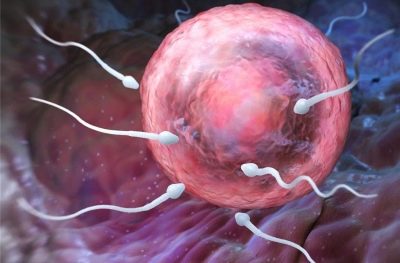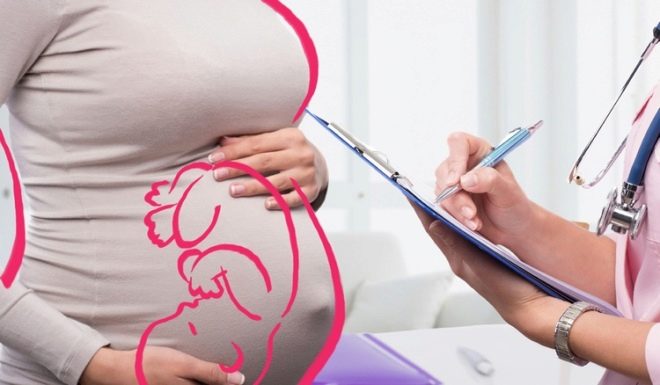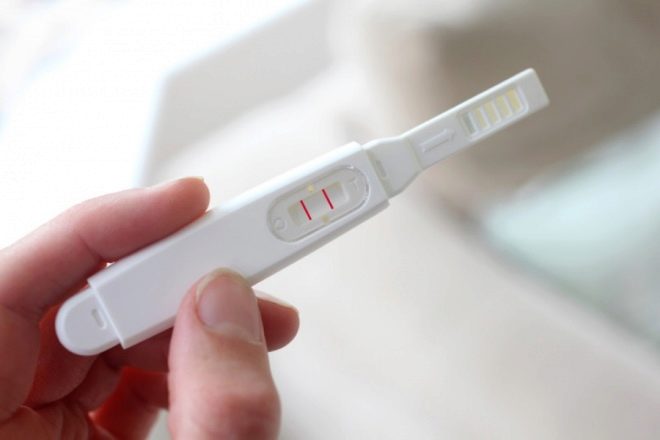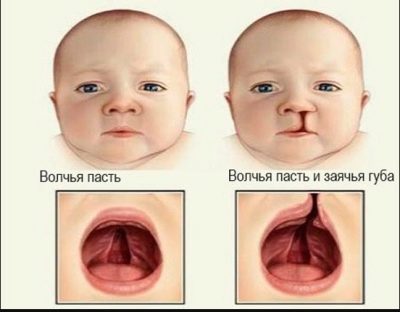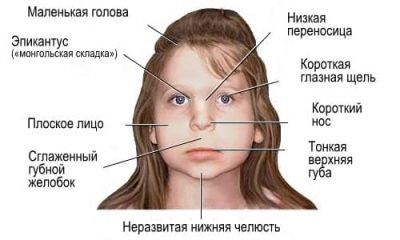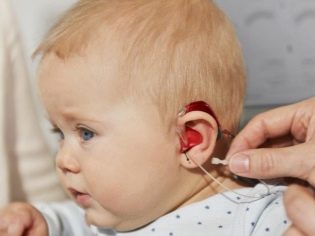Effect of alcohol on conception, ova and sperm
There is an opinion among the people that there will be no harm from a glass of wine or a glass of brandy. Often this glass of wine becomes daily. And this spouse also does not see anything wrong, in fact, alcohol has a cumulative effect. Often, it manifests itself precisely when a man and a woman think about posterity. Alcohol has a different effect on the female and male body, but the result is often deplorable.
Alcohol and man
Sperm cells are rather fragile and tender cells. Anything can affect the quality of sperm - a man’s diseases, fatigue, a state of stress in which he is. Alcohol, or more precisely the ethyl alcohol that it contains, reduces the motility of the male sex cells, reducing its fertility (fertilization capacity).
Previously, it was believed that a pair of glasses does not affect the quality of sperm cells, because they are produced long before a man takes a dose of alcohol. Now doctors completely refute this information, because alcohol degradation products penetrate the seminal fluid within an hour after ingestion of alcohol. In it destructive processes begin to occur, alcohol destroys and “cripples” healthy germ cells. A sperm without a tail or a head is not capable of conception.
With a prolonged and systematic intake of alcohol, spermatozoa are already being developed by patients, and not only their morphology, but also their genetics change. If such a genetically modified sperm nevertheless fertilizes the egg, the risk of giving birth to a sick child will be very high.
Earlier, when medicine was not at such a high level, more often natural selection “worked”. Sick and inferior embryos, which appeared as a result of a drunken conception, were rejected by the female body itself, a miscarriage occurred. Now doctors are trying to maintain pregnancy at any cost, so children with severe pathologies, defects, and chromosomal abnormalities are increasingly being born.
The systematic use of alcoholic beverages adversely affects the potency, and, the more and longer a man drinks, the worse things are with his libido and the ability to have full sexual intercourse. New spermatozoa mature long enough - about 3 months.
That is why doctors recommend abstaining from drinking alcohol for 3-4 months, if a man seriously intended to become the father of a healthy and happy baby.
Alcohol and women's health
Every girl is born with a large “strategic” supply of eggs in the ovaries. During puberty, the eggs begin to leave the follicles once a month, ovulation occurs, the menstrual cycle is established. Alcohol can interfere with this process, causing an increase in the number of anovulatory cycles, that is, cycles in which ovulation does not occur at all.
The morphology and structure of the egg, equally with sperm, can change under the influence of alcohol. Alcohol has a destructive effect not only on the dominant follicle in which the egg cell matures, and its output will occur in this cycle, but also on the entire supply of eggs in the ovaries. In this way, The chances of conceiving a healthy child in a drinking woman are minimal even if she quit drinking several months ago.
The ovaries themselves, with the periodic libations of their “mistress”, begin to age rapidly, their functions are dying out, the woman becomes barren. But then many may wonder why, then, women who drink and suffer from overt alcoholism regularly become pregnant and give birth, and this turns out to be faster for them than for a couple of sober who plan their baby.
The answer to this question is rather unexpected. The ovaries of the woman, while the ovarian functions have not been completely extinct, have the ability to "mobilize" in extreme situations, because their main task is to continue the race. They begin to carry out this program with redoubled forces, no longer being healthy and full-fledged, therefore it is not necessary to speak about a healthy conception.
Conception intoxicated
If both partners are intoxicated at the time of conception, but they are not chronically drunk people, the probability that the conception is successful and the child is healthy, exists, but it is not great.
Than risk the man and the woman who decided to drink alcohol before sex, it is easy to guess. At stake is the health of their heir. For a man, the state of intoxication at the moment of conception is more critical than for a woman, because alcohol penetrates into the seminal fluid, modifying his sex cells. The female ovum matured earlier. If during the follicular phase of the cycle a woman did not take alcohol, a small amount at the time of conception will not have time to affect the egg itself, but it can affect the processes of its division and advancement through the fallopian tube after the meeting of the egg with the sperm.
That is why often "drunk" sex ends with an ectopic pregnancy, miscarriage in the early period, detachment of the ovum. Any intervention in the subtle processes of dividing a fertilized egg, including at the chemical level, can lead to violations of these processes, loss of pregnancy.
Taking alcohol after conception
From the moment of conception until the delay of menstruation, which serve as a signal for a woman to do a pregnancy test, it takes at least 2 weeks. Sometimes a lady does not realize at all that the conception took place, and during these two weeks she leads a free way of life, in which there is a place for alcohol. After the "striped" test, which shows the true cause of the delay in menstruation, a woman involuntarily raises the question, and how can she take the alcohol before the delay in menstruation affect the unborn child and is it worth it to continue the pregnancy?
Everything that enters the maternal organism from the first hours after conception, in one way or another goes to the future baby. If it is not about chronic alcoholism and large doses of strong alcohol, the female body can partially compensate the child for the inconvenience. Therefore, it is not worth having an abortion just because a woman took several glasses of wine before the delay. With a high degree of probability, the healthy and young body of the future mother maximally leveled the harmful effects.
It is important to avoid taking alcohol in the future.After all, an important and responsible process is taking place in a child - it is the formation of all organs and systems, alcohol can make its own “corrections”, then the developmental defects of the internal organs, brain, spinal cord are not excluded.
Taking alcohol at the beginning of pregnancy increases the risk that the period of gestation of the baby will be accompanied by strong toxemia.
The immunity of a woman who, before conception, was not averse to drinking alcohol, is reduced compared with the immunity of a non-drinker woman. This creates additional danger when carrying a baby, because such a woman is more vulnerable to the viruses and bacteria that surround her.
The consequences of "drunken conception" for a child
The fact that alcohol before conception and during conception affects a child is undoubted. But for some reason, not all couples think about it. Most likely, the reason for such carelessness lies in the absence of specific information on what the consequences could be. We are accustomed to the fact that we simply claim that alcohol is harmful, without explaining exactly how drinking can affect offspring. Alcohol, acting at the time of conception on the germ cells of women and men, can lead to violations of the construction of DNA chains in crushing cells of the zygote. Bookmark organs and systems may initially go the wrong way.
There are several of the most common effects of “drunken conception.”
“Rabbit's lip” and “Wolf's mouth”
The cleft lip is a facial defect associated with non-incision of the upper lip, the formation of an ugly cleft. This creates difficulties in feeding the baby, later this cleft interferes with the formation of speech. Most often with such a vice boys are born. Formed crevices up to 8 weeks of pregnancy.
The pathology is based on the mutation of the TBX22 gene, which becomes possible not only with radiation exposure, but also with systematic alcohol consumption by two spouses or one spouse, even in insignificant amounts. Unfortunately, to identify such a defect in a child can only be late in pregnancy during an ultrasound. Usually at such a time (after 32 weeks), pregnancy is no longer interrupted.
A wolf's mouth is a pathology associated with the formation of a cleft in a soft and hard palate, a cleft that results in the nasal cavity being uninsulated from the oral cavity. It also creates tangible problems with feeding the child, with the development of his speech functions. This pathology most often appears due to the fault of the mother, since it is caused by alcohol and other teratogenic effects on the TBX22 gene in the X chromosome.
In both cases, the baby is waiting for surgery, and perhaps a whole series of operations designed to eliminate the defect, and then a long rehabilitation period. Wolf's mouth is more common and more difficult to treat. It happens that a child up to 2-3 years old has to transfer up to 7 surgical interventions.
Fetal alcohol syndrome
Under this concept lies a large list of combinations of mental and physical defects and anomalies that develop in the fetus due to the fact that his mother used alcohol before conception or after it. The central nervous system suffers most often, the child is born with mental retardation, impaired intelligence and behavior, as well as abnormalities in the structure of the brain.
Almost all children conceived in a drunken "intoxication" are born with a lack of body weight and little growth. Frequent manifestation of fetal fetal alcohol syndrome is congenital heart disease and organs of the reproductive system. The severity of the lesions depends on how much, for a long time and often the mother and father take alcohol. All children with this syndrome are characterized by certain external features:
- eyes look shorter and narrower;
- the nose of the baby is flattened and wide;
- the labial groove (vertical folds between the upper lip and nose) is almost absent;
- upper sponge is thinner;
- Mongoloid fold of the eyelids in the region of the lacrimal canal;
- a certain degree of microcephaly (reducing the size of the skull and the mass of the brain).
Usually children with alcohol syndrome can be seen immediately after birth. All abnormalities caused by alcohol are considered lifelong, with age they do not pass. Not always signs of fetal alcohol syndrome are visible externally.
If a woman uses infrequently and a little, but still systematically, if a non-drinking woman decides to conceive from a heavy drinker, then the processes inherent in the fetal alcohol syndrome will be hidden in the child, but they will definitely manifest.
Other consequences
Excessive alcohol consumption by a mother, father, or both spouses before conception, at the time of conception, in the first two weeks after conception, and also during pregnancy is often manifested in a child who, at birth, looks outwardly healthy, later.
Such disorders include hearing and vision impairment, which parents begin to learn about within a few weeks or months after the baby is born. They have a reduced ability to learn, even elementary things to teach such a baby is much more difficult. They have significant problems with memorization and concentration.
Behavioral problems in children born of "drunken conception" begin to manifest themselves not only in adolescence, but earlier. Often they require training in special correctional schools. Such children are not physically able to control all their emotions, they are poorly aware of the consequences of their ugly or illegal actions.
Some statistics
Often, future parents think that the consequences described can affect anyone, but not their families. This is not so, because the inexorable statistics show that out of 1,000 babies in Russia, 10 babies have signs of fetal alcohol syndrome. If one child grows in a family with this syndrome, then, according to statistics, the second child with 80% probability will also suffer from some degree of fetal alcoholic illness.
A woman who drinks several times a week runs the risk of having a sick baby with a probability of 45%. If she continues to drink during pregnancy, this probability doubles. Russian studies have shown that 13% of babies who are in orphanages or children's homes have obvious signs of fetal alcohol syndrome, and 45% of children have signs of a violation of the fetal alcohol spectrum (symptoms are mild, but they are present).
90% of these children have the risk of developing sudden alcoholism in adolescence. In women who drank moderately during pregnancy, such risks are no less. The child will be prone to alcoholism at the genetic level.
To prevent such a future, you should take care of the health of the baby now, when he is not conceived.
How alcohol affects conception and childbearing, see the following video.


